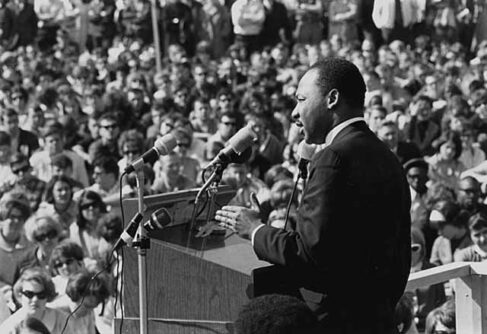The news is worst for non-profits who must expand their donor base: while almost four-fifths of those surveyed declared that they are equally or more willing to give to charities they have supported in the past, the same fraction said that they are less willing to give to a charity they have not supported previously.
This situation of declining giving in the face of rising need shows what the seventeenth-century political philosopher Thomas Hobbes termed “the uncertainty of private charity.” Hobbes wrote:
And whereas many men, by accident inevitable, become unable to maintain themselves by their labor, they ought not to be left to the charity of private persons, but to be provided for, as far forth as the necessities of nature require, by the laws of the Commonwealth. For as it is uncharitableness in any man to neglect the impotent; so it is in the sovereign of a Commonwealth, to expose them to the hazard of such uncertain charity.
Hobbes’ solution to the uncertainly of private charity is a strong government whose charity will provide for the poor under its dominion.
Hobbes—who famously declared that life would be “solitary, poor, nasty, brutish, and short” in the absence of strong government—offers a calculating rationale for government charity. Hobbes argues that men and women in poverty are justified in robbing and stealing:
When a man is destitute of food or other thing necessary for his life, and cannot preserve himself any other way but by some fact against the law; as if in a great famine he take the food by force, or stealth, which he cannot obtain for money, nor charity; or in defense of his life, snatch away another man’s sword; he is totally excused.
Hobbes concludes that a strong government must prevent justified breaches of civil peace by providing for those in need. Thus Hobbes comes to describe charity (along with justice) as the “sister” of civil peace.
Hobbes’ justification for public charity as a way of checking social unrest is unsavory: public welfare programs are more often justified as democratic guarantees of a certain minimum economic welfare that is compatible with dignity and from which citizens may participate fully in civil society. However, Hobbes’ connection of government charity to a strong government cautions us that government charity and strong government may go together. Although today government welfare programs offer a crucial safety net, we should be a little nervous about the erosion of private charity and its replacement by government charity.
So in addition to fearing a “new normal” in the general economy where GDP growth remains under two percent and unemployment remains near ten percent, we may worry about a “new normal” in the charitable sector where fewer Americans are supporting charities. Charities and non-profits not only provide for those in need, but they support the democratic freedoms and habits of participation in civil life that are central to American democracy.





